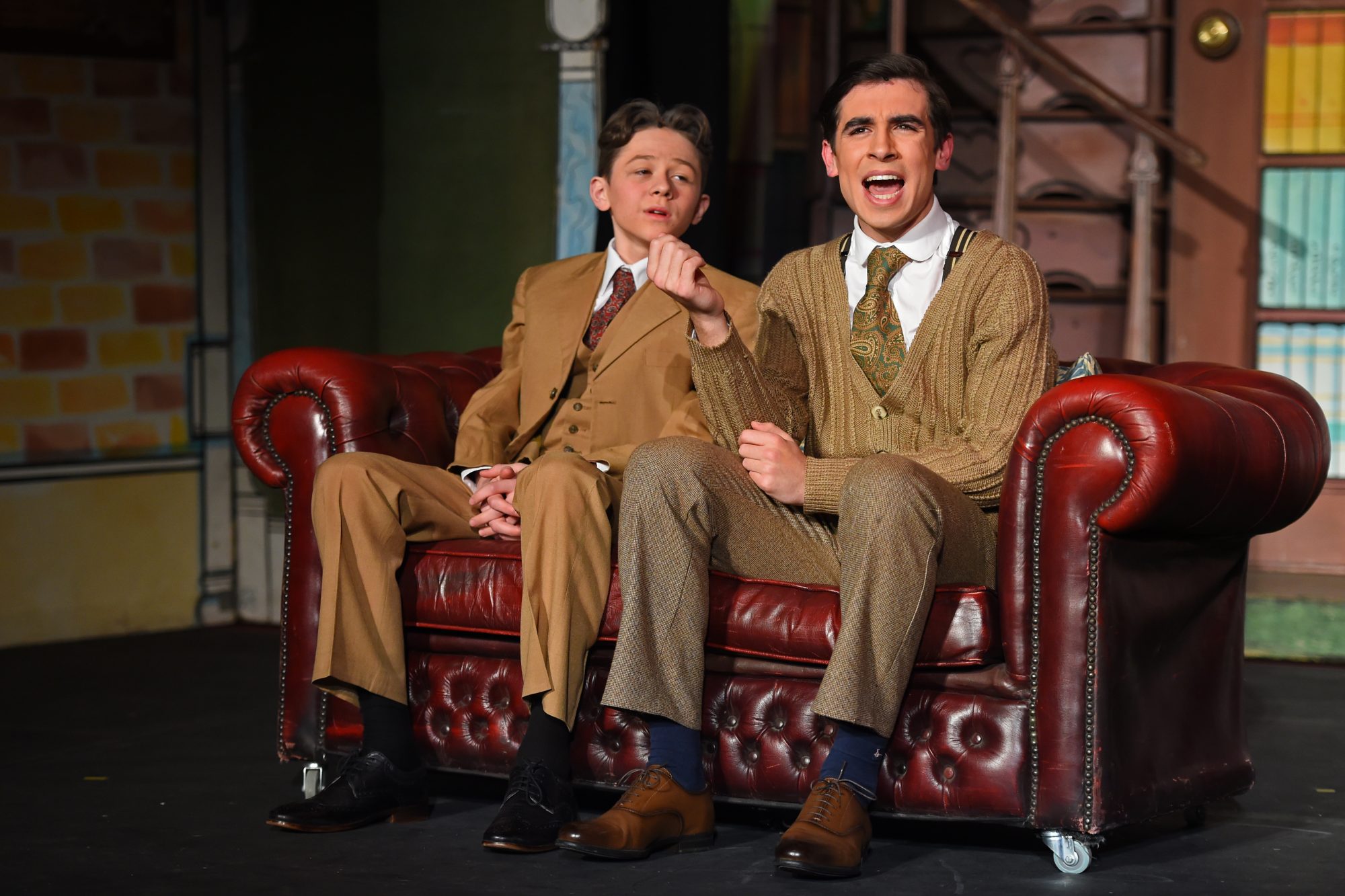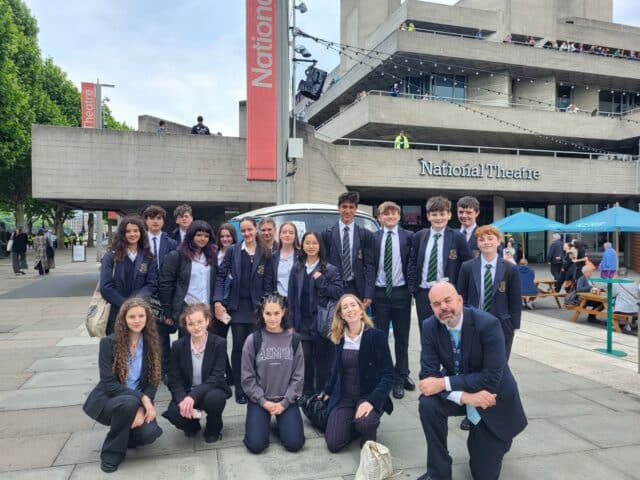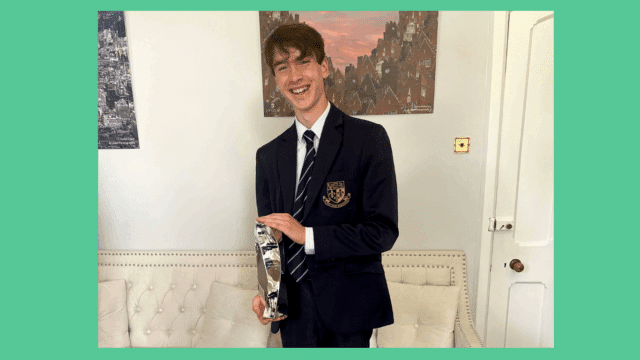The traditional Lent term musical rehearsals started in earnest in September. The dedicated cast of 22 pupils sung, danced and rehearsed their lines three days a week in preparation for the three nights’ of sell-out performances in March. Here Marisa Bosa reviews proceedings.
I must confess that I am not a fan of the musical My Fair Lady, I find the concept – a wealthy man deciding to use a woman to prove how clever he is and then place a bet to prove he can ‘make her better’ – deplorable.
Songs like I’m an Ordinary Man and A Hymn to Him solidify Professor Higgins as a misogynistic academic snob. I suppose that was what Loewe and Lerner were trying to do: highlight the nature of the sexist Victorian era.
Mr Rod Wycherley and Ms Natalie Bubbear certainly took on the challenge of this controversial piece and did it justice. An elaborate set was able to give the piece a clear setting without overwhelming the performance and the unique use of Big School had actors exiting and entering from all around the audience, making you feel immersed in the action on stage. I particularly liked how they directed Mrs Pearce to be more of a second hand to Professor Higgins rather than a simple employee.
You begin to get a sense of poor Eliza’s challenges when you first meet her father, Alfred P. Doolittle (played by Will Ludlow (Rn)) and his friends Jamie (Bertie Gathercole (G)) and Harry (Tom Bulmer (F)).
Their slapstick rendition of With a Little Bit of Luck had the audience laughing and feeling sorry for Eliza, who was about to become a bank for this trio of drunks.
However, sympathy for Eliza is short-lived as Katie Vickers (Rv) portrays our heroine as a strong feisty woman who is more than capable of taking care of herself. Vickers’ cockney accent was impressively consistent throughout the show and her powerful voice and stage presence made you cheer Eliza on.
Her renditions of Just You Wait and I Could Have Danced All Night highlighted the strength of Vickers’ voice and Eliza’s character. However it was Vickers’ performance of Show Me which really made me want to stand up and applaud; Eliza was putting her sappy boyfriend Freddy – played by Harry Milne (P) – in his place, asking for his actions to replace his words. Milne played the lovesick Freddy well and his always-impressive vocals were highlighted in On the Street Where You Live.
However, it was Max Fryer’s (Rn) portrayal of Professor Henry Higgins, which stole the show. I spent the entire musical loathing this man who was arrogant, self-indulgent, and rude. Fryer was able to portray this complex character well and was impressive throughout.
Higgin’s Paso Doble was hilarious and Fryer infused humour into his performance effortlessly. One of my favourite scenes was with Higgins and Mrs Pearce, played by Meredith Briggs (Rv), where Higgins was asking “why can’t a woman be more like a man?” Briggs quietly protests her employer’s rantings, following him around with exasperated looks which naturally he simply did not see.
In addition to these standout characters, I need to address the fantastic performances of the chorus, orchestra, and set crew.
The chorus tackled large dance numbers, many of which required difficult timings, very well. They were always engaging with the audience and working as team. The scene at Ascot required very slight and coordinated movement, which was well executed and very funny. The set crew did a wonderful job of moving a large and complex set that added to the whimsy of the production.
Finally, you cannot review a musical without mentioning the music. The orchestra, which was led by Mr Graeme Lodge, was composed nearly entirely of students and the quality of their performance was impeccable. While watching the production your attention was never drawn to the musicians as it simply flowed, almost imperceptible, into the storyline. Which in my opinion is exactly what you want from your orchestra.
Mr Wycherley described Higgins as the character that has the largest transformation (albeit slight) but by the end of the performance, I believed that he has the potential for more growth in a fictional future as strong women surround him. Perhaps this was the irony that Loewe and Lerner were trying to depict.





